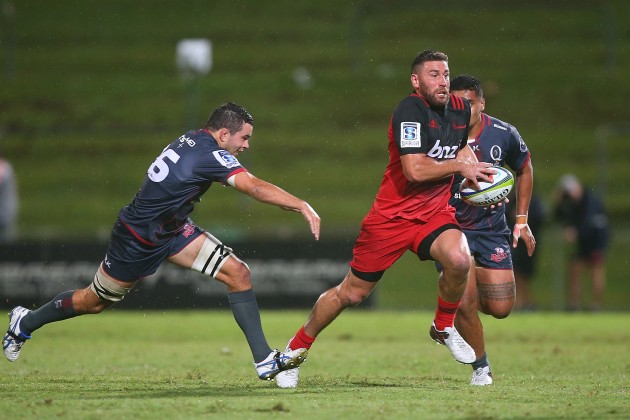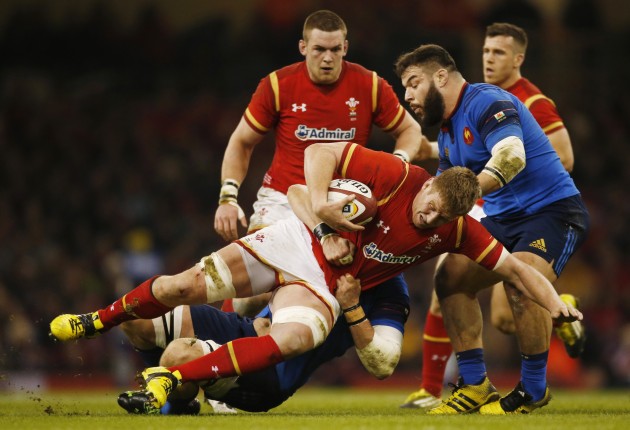By Paul Williams
Why can’t our southern hemisphere coaches coach the southern hemisphere way?
We, in the northern hemisphere, want to play rugby like the southern hemisphere. The quality of play in this year’s RBS 6 Nations has received a lot of negative reaction in the media, yet all of the home nations are coached by gents from south of the equator.
It is an unusual situation. Is it that Warren Gatland, Joe Schmidt, Vern Cotter and Eddie Jones can’t really be considered ‘modern’ southern hemisphere coaches? Schmidt hasn’t coached Down South since 2007, Cotter since 2006, and Gatland since 2007. Eddie Jones is the most recent to have coached in the southern hemisphere ‘style’, even though Japan is north of the Tropic of Cancer. Jones, to his credit, is the only coach in this year’s Six Nations to have played genuine footballers at ten and 12.
Is the reality that when these four coaches, particularly Gatland, Schmidt and Cotter, were actually plying their trade in the southern hemisphere, rugby was a different game? Before the change to the breakdown laws, rugby was very much a kicking game where it was safer to play without the ball than with it. Or is it that all four have ventured north and simply not found the players that are able to play the southern hemisphere game? Either way, it’s weird.
Jaguares’ instant impact
Someone has given the Jaguares the cheat codes to Super Rugby. That can be the only explanation. Their impact on the opening weekend was remarkable. It would be newsworthy if the Jaguares had merely beaten the Cheetahs – which they did 34-33. The Jaguares would have garnered even more attention if they’d beaten the Cheetahs in Bloemfontein – which they did. The Jaguares would have lit up Twitter if they had come back from 24-3 down – which they did.

Easy on the eye: The Jaguares, under charismatic captain Agustín Creevy, made a stunning debut (Pic: AFP)
But the reason, above all, to applaud the Jaguares is that they did it in true Super Rugby fashion. This victory wasn’t sneaked with rolling mauls and penalty kicks – it was achieved with 80-metre breaks and Agustín Creevy, the Pumas hooker and captain, delivering offloads so silky that the silkworms left a trail on the ball.
The Jaguares beat 45 defenders, made 14 clean line breaks and had a wing and a centre who carried more than 140 metres each. They will have harder games to come, and this opening victory may have been a blip – but what a beautiful blip.
Super Rugby taking all the right risks
Super Rugby is a wonderfully challenging brand – in every sense. Its attitude to risk, and the benefits of that risk, should be admired. This mindset is obvious in the style of rugby played in that league. Where even combining the relatively reserved rugby of South Africa, the product nets out with more offloads, running metres and tries than a northern hemisphere supporter can comprehend.

Lots of noise: Stormers fans celebrate a try in a competition that embraces risk – on and off the field
But this expansive attitude extends beyond the field and into the boardroom. Whilst in Wales some are still muttering about the lack of rugby 15 miles north of Cardiff, Super Rugby has flicked its tentacles over to Argentina and Japan. As with everything in Super Rugby the expansive attitude with the ball, or the ballpoint pen, may not always work. But the overall ethos does, and has to be applauded.
Test rugby no longer the pinnacle for French players
Let’s face it, French international players no longer see playing for France as the pinnacle. And who can blame them? The reality of Test rugby is that it needs to be the elite point of a player’s career. Not only the environment in which they can reach their peak on-field performance, but the point at which they reach their peak earnings – through fees, sponsorship or public appearances.
Test rugby has always been the juncture from which players achieve this – in every other Tier One nation it is still thus. But French rugby has passed that point. French players no longer need to play for their country to hit their maximum earnings, fame and self-fulfilment.

French test: Do players like Toulon’s Maxime Mermoz see club or country as the pinnacle? (Pic: AFP/Getty)
French rugby has become English football, where playing for your country is a step down. A step where you have to play for a manager that you don’t know, with players you have little rapport with, in a tournament that has no impact on your life. French Test rugby is in a mess.
Welsh regions recruiting shrewdly
February saw the Welsh regions continue a new trend in recruiting overseas names. The regions no longer employ players that merely deliver column inches, they bring in players that deliver performances.
The Ospreys’ recruitment of Kieron Fonotia is a perfect example. Fonotia isn’t an All Black superstar like Justin Marshall. He’s not even a Super Rugby star, despite being a regular starter for the Crusaders last season, and having started their first game of this Super Rugby season.
But Fonotia is exactly what the Ospreys require. A rock-solid option at centre/wing who will play his guts out all season – in exactly the same way that Hadleigh Parkes has for the Scarlets. The reality is that the second- and third-choice players in New Zealand Super Rugby, and first-choice players in the ITM Cup, are hugely capable individuals. And Welsh rugby is shrewdly recruiting them.

Class act: The Crusaders’ Kieron Fonotia is no celebrity but will do a great job for the Ospreys (Pic: Getty)





